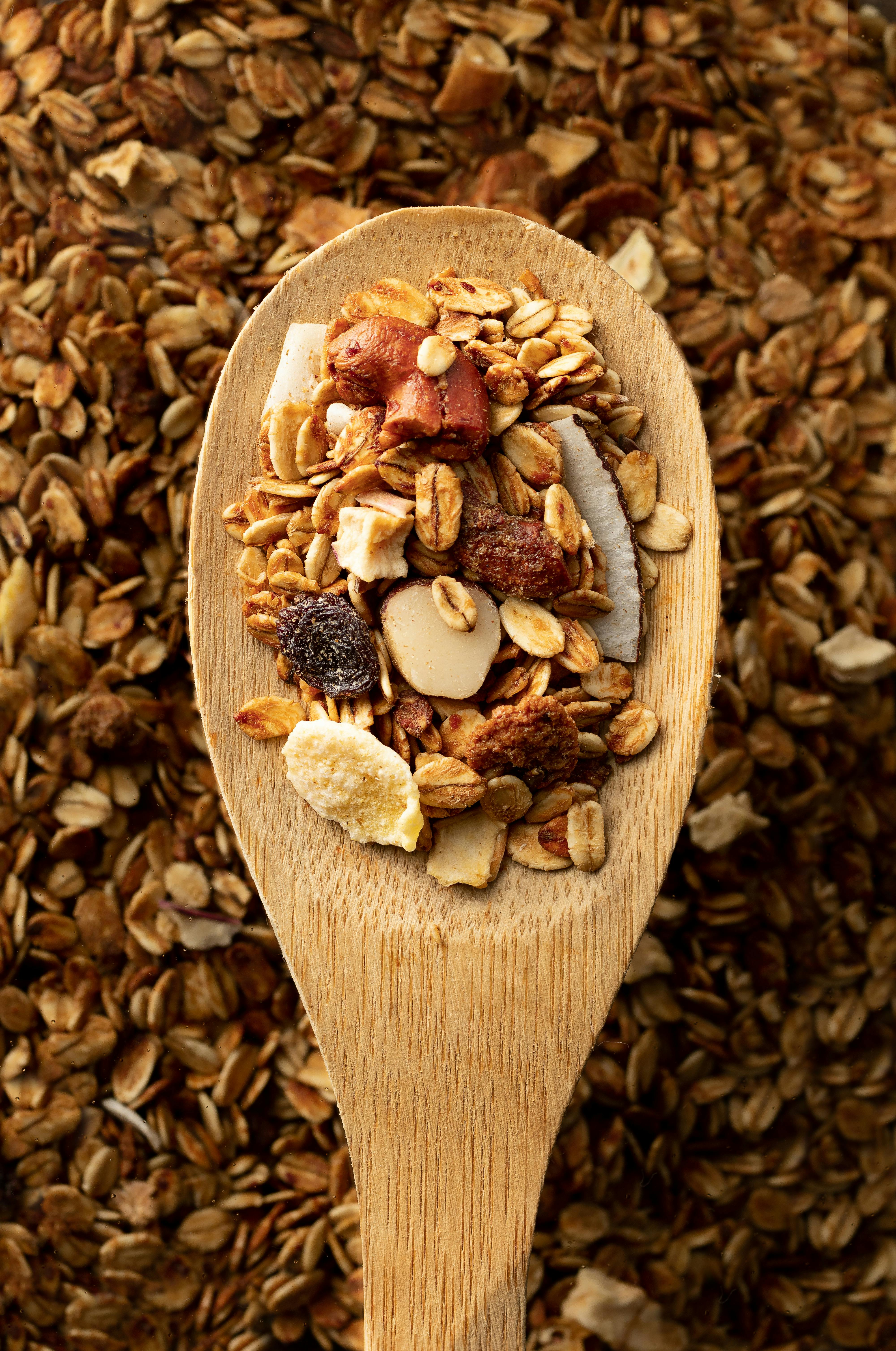Practical Guide to a 30-Day IBS Diet Plan for Improvement

Practical Guide to a 30-Day IBS Diet Plan for Improvement
Managing Irritable Bowel Syndrome (IBS) effectively often begins with making significant dietary changes. A well-structured IBS diet plan not only helps in alleviating symptoms but also promotes overall digestive health. This practical guide lays out a comprehensive 30-day plan that incorporates low FODMAP diet principles, helping you identify foods for IBS while ensuring you still enjoy diverse and delicious IBS-friendly meals.
Throughout this guide, you will find various meal ideas, snacks, and hydration strategies that collectively contribute to managing IBS symptoms. We'll highlight benefits such as improved gut health and digestive regularity, and we'll offer practical tips for meal prep for IBS to simplify your cooking and eating routines. By the end, you'll not only have a roadmap to follow but also an understanding of how these dietary changes can enhance your health.
This article will cover:
- Foods to include and avoid
- Sample meal plans
- Expert tips on managing triggers and symptoms
- Importance of hydration and fiber
Let’s dive into the details that form the backbone of a successful IBS diet.
Understanding IBS and Dietary Triggers
Before embarking on your 30-day IBS diet plan, it’s crucial to understand IBS itself and the potential dietary triggers influencing your symptoms. IBS is a chronic digestive disorder characterized by symptoms like bloating, gas, diarrhea, and constipation. Recognizing foods to avoid with IBS can empower you to take control of your health.
Many individuals find that certain ingredients exacerbate their condition. For example, high-fat meals and certain carbohydrates can lead to increased symptoms. A low FODMAP diet focuses on reducing foods that can ferment in the gut, thus minimizing discomfort.
Common dietary triggers may include:
- Fruits high in fructose, such as apples and pears
- Certain dairy products that contain lactose
- Gluten-containing grains
To successfully navigate your diet, keep a food diary to note which foods affect you most. This personal approach will aid in tailoring your plan and improving your digestive health. Additionally, consider consulting with health professionals for guidance on food intolerances and effective meal planning strategies.

Building Your IBS-Friendly Food List
Creating an IBS food list involves incorporating various options that support a healthy digestive system while remaining satisfying and enjoyable. Here are categories of foods you might consider including:
Fruits and Vegetables
Opt for fruits low in fructose and vegetables that are gentle on the digestive system. Bananas, blueberries, and spinach are excellent choices, while carrots and zucchini can provide needed nutrients without irritating your gut.
Protein Sources
Include lean meats, fish, eggs, and legumes. To make sure that you are not developing any intolerances, you can start with small portions. Tofu is also a great alternative for those seeking plant-based proteins.
Grains and Starches
Whole grains such as rice, quinoa, and oats can be beneficial; however, monitoring your response is essential. Start with gluten-free options to test tolerance levels.
Dairy Alternatives
Many with IBS experience symptoms from dairy. Choose lactose-free products or plant-based alternatives like almond or coconut milk.
Fats and Oils
Incorporate healthy fats such as olive oil and avocados, which can support gut health without causing discomfort. Be cautious with portion sizes, as high-fat meals are known triggers for some individuals.
By establishing a comprehensive food list for your 30-day plan, you will make informed decisions and maintain balanced nutrition. It's essential to track how your body reacts to different foods, adjusting your diet as necessary.

Sample IBS Meal Plans: Breakfast, Lunch, and Dinner
Now that we’ve discussed the foundational aspects of your IBS diet, let’s look at practical implementation through meal ideas for IBS. Below are sample meal plans covering breakfast, lunch, and dinner to get you started.
Breakfast for IBS
Starting your day with the right meal sets the tone for your digestive health. Consider options like:
- Overnight oats with almond milk, chia seeds, and slices of banana.
- Scrambled eggs with spinach and a sprinkle of lactose-free cheese.
- Low FODMAP smoothie made with spinach, blueberries, lactose-free yogurt, and a scoop of protein powder.
Make sure to hydrate adequately during breakfast, as it aids digestion.
Lunch for IBS
For lunch, meal-prepping can be beneficial. Consider these ideas:
- Quinoa salad with cherry tomatoes, cucumbers, and grilled chicken.
- Rice paper rolls filled with shrimp, vermicelli noodles, and crunchy vegetables.
- Grilled vegetable wrap with hummus in a gluten-free wrap.
These meal ideas are nourishing and provide the necessary fiber-rich foods your body needs without triggering IBS symptoms.
Dinner for IBS
End your day with balanced meals. Here are some simple yet fulfilling dinner options:
- Baked salmon with steamed green beans and roasted potatoes.
- Stir-fry chicken or tofu with bell peppers, carrots, and rice, seasoned with low-sodium soy sauce.
- Vegetable soup made with low FODMAP ingredients.
Experiment with herbs such as ginger or turmeric, known for their anti-inflammatory properties, while also adding flavor to your meals.
Emphasizing Hydration and Snack Choices for IBS
Hydration is vital for maintaining digestive health, particularly when managing IBS. Drinking adequate fluids, primarily water, helps keep your digestive system functioning smoothly. Keep in mind that herbal teas can also contribute to hydration while offering potential calming properties.
When it comes to snacks for IBS, select items that promote gut health. Here are some snack suggestions:
Best Snacks for IBS
Choose snacks that are low FODMAP and provide a balanced nutrient profile:
- Cucumber slices with hummus.
- Rice cakes topped with almond butter.
- Baby carrots and lactose-free yogurt dip.
These snacks can keep your energy levels up while avoiding triggers, supporting your journey towards improved digestive health.
Recipes for IBS: Easy Cooking Tips
Cooking techniques can significantly impact how meals affect your digestion. Opt for gentle cooking methods such as steaming, poaching, or baking to preserve food nutrients while ensuring easy digestion.
Here are some recipes for IBS that focus on gut-friendly ingredients:
Low FODMAP Recipe Ideas
Try these healthy recipes which emphasize fiber and gut health:
- Simple vegetable stir-fry with rice and a mix of your favorite low FODMAP veggies.
- Quinoa salad with cucumbers, tomatoes, and grilled chicken seasoned lightly with herbs.
- Soup made from bone broth with carrots, celery, and your choice of protein.
These recipes are not only easy to prepare but also catered to your gut health, positioning you for success in your 30-day IBS diet plan.
Q&A: Common Queries Regarding an IBS Diet
What is the importance of a low FODMAP diet?
A low FODMAP diet helps to restrict certain carbohydrates that can lead to fermentation and worsen IBS symptoms. It’s proven effective in identifying personal food triggers.
How can I maintain digestive health while eating out with IBS?
Focus on restaurants that may accommodate by offering low FODMAP options. Communicate dietary restrictions to servers and opt for simple dishes without complex sauces.
What supplements can support IBS management?
Probiotics are often recommended as they can help restore gut flora balance. Additionally, digestive enzymes may assist in breaking down food more efficiently.
How do portions affect my IBS symptoms?
Eating manageable portion sizes can alleviate the burden on your digestive system. Aim for smaller, more frequent meals rather than larger ones, which can trigger bloating.
Can stress management techniques help with IBS?
Yes, lifestyle changes such as incorporating stress-reduction practices, such as yoga or meditation, can significantly impact your overall wellbeing and IBS symptom management.